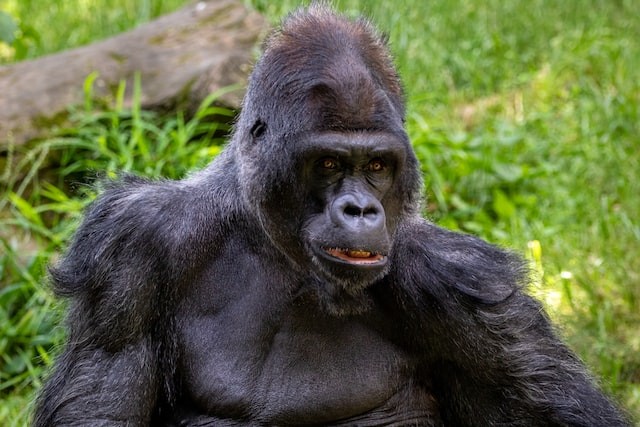Wild, endangered mountain gorillas in East Africa are receiving individualized medical care from veterinarians thanks to plants they've chowed down on. The study has been done by scientists from the University of California and the Gorilla Doctors within every known protected area where mountain gorillas live i.e Volcanoes National Park Rwanda, Bwindi Impenetrable National Park, Mgahinga National Park and Virunga National Park.
Epstein-Bar Virus in Gorilla

The Epstein-Barr virus belongs to the Lymphocryptovirus genus and is a gamma herpesvirus. It is one of the most pervasive and common human diseases, infecting over 90% of people and living inside them all their lives with usually no severe health effects or symptoms, as per ScienceNews.
However, the virus can be difficult for those with HIV/AIDS and weakened immune systems, which can result in some cancer types. One of the main causes of mononucleosis, widely known as the kissing illness, is the Epstein-Barr virus.
According to research by Dr. Tierra Smiley Evans and colleagues from the University of California, Davis, wild mountain gorillas have a unique strain of the herpes virus called lymphocryptovirus 1. (GbbLCV-1).
The condition known as pulmonary reactive lymphoid hyperplasia, which is present in newborns and young children with HIV/AIDS who contract the Epstein-Barr virus, was discovered in some infant gorillas who died naturally and had necropsies, according to the study's authors.
The discoveries may be useful in understanding human sickness and may have an impact on gorilla conservation.
Read More: Hitchhiking Herpes Virus Aligns with Spread of Human Civilization
Healthcare of mountain Gorillas
Mountain gorillas living in the wild in Rwanda, the Democratic Republic of the Congo (DRC), and Uganda need individualized healthcare from Gorilla Doctors who know each gorilla by name. This simple, non-invasive tool is a chewed plant, as per ScienceDaily.
A human herpesvirus may only cause a cold sore in a person, but if it is spread to gorillas or other animals, it may have more severe effects.
The study revealed no evidence of human herpesvirus infection among the free-ranging gorillas after collecting the DNA from the rejected plants and testing them for orally shed infections.
The wild gorillas in the area are used to humans and gorilla trekking is a popular activity. While gorilla tourism encourages the preservation of their habitat, it also necessitates a high standard of care to avoid human and gorilla disease transmission.
Human herpesviruses have not spread, according to the study's findings, which suggests that the measures Gorilla Doctors and gorilla management authorities are using to keep humans and gorillas apart in the park are working to stop the transmission of disease.It also acts as a reminder to maintain vigilance to stop the spread of new viruses.
Chewed plant analysis is a relatively new method that Gorilla Doctors are using to give this endangered animal individualized care.
Of course, face time is also crucial, and the rangers and gorilla doctors are familiar with each gorilla by sight. The furrows on each gorilla's nose make it much easier to identify one gorilla from another.
Similar to how fingerprints are utilized to identify people, mountain gorillas have distinctive nose prints that veterinarians and rangers can use to identify them.
According to Evans, when studying mountain gorillas, the personalities and tragedies of their lives become immediately clear. Evans remembers seeing a young male gorilla when she was gathering materials for her Ph.D. research ten years ago.
Related Article: Is Ebola Driving Gorilla Extinction?
© 2024 NatureWorldNews.com All rights reserved. Do not reproduce without permission.
* This is a contributed article and this content does not necessarily represent the views of natureworldnews.com

![Tsunami Hazard Zones: New US Map Shows Places at Risk of Flooding and Tsunamis Amid Rising Sea Levels [NOAA]](https://1471793142.rsc.cdn77.org/data/thumbs/full/70325/280/157/50/40/tsunami-hazard-zones-new-us-map-shows-places-at-risk-of-flooding-and-tsunamis-amid-rising-sea-levels-noaa.jpg)



